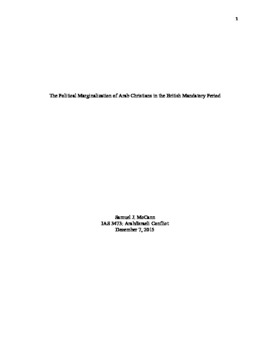| dc.contributor.author | McCann, Samuel | en_US |
| dc.contributor.editor | Otto, Jon | en_US |
| dc.contributor.editor | Strachan, Kiersten | en_US |
| dc.contributor.editor | Thompson, Rita | en_US |
| dc.contributor.editor | Hurd, Elizabeth | en_US |
| dc.contributor.editor | Cole, Emily | en_US |
| dc.contributor.editor | Smith, Robert | en_US |
| dc.contributor.editor | Miles, Sarah | en_US |
| dc.contributor.editor | Capps, Sarah | en_US |
| dc.contributor.editor | Collins, Adriana | en_US |
| dc.contributor.editor | Dixon, Arthur | en_US |
| dc.contributor.editor | Rodríguez, Monique | en_US |
| dc.contributor.editor | Romines, Richard | en_US |
| dc.contributor.editor | Otis, Franklin | en_US |
| dc.contributor.editor | Clark, Matthew | en_US |
| dc.date.accessioned | 2016-11-15T21:54:51Z | |
| dc.date.accessioned | 2021-04-14T15:13:15Z | |
| dc.date.available | 2016-11-15T21:54:51Z | |
| dc.date.available | 2021-04-14T15:13:15Z | |
| dc.date.issued | 2016-04-01 | en_US |
| dc.identifier.uri | https://hdl.handle.net/11244.46/1220 | |
| dc.description | Honorable Mention for the Griswold Prize for Excellence in Undergraduate Historical Scholarship | en_US |
| dc.description.abstract | The Arab/Israeli conflict has been addressed as an ethnic conflict to a simple conflict over land. The use of a religious framework receives a lot of attention in the popular imagination, pitting Islam against Judaism. There are numerous problems with this paradigm, but one problem that often goes unnoticed is the erasure of Arab Christian involvement within the conflict. This erasure causes an oversight in regards to the very important contributions Christians made to the development of Arab nationalism. This oversight causes the fundamental misunderstanding that the conflict is religious and not political. A historical examination of Arab Christian involvement can break away from this paradigm. It can also develop a deeper understanding of the conflict. Focusing the analysis on the British Mandatory period, with special regard to Christian involvement in the nationalist movement, one can gain insight into the critical moments of the conflict and the necessary processes for its maturation into what it is today. However, to understand these developments, one must understand the historical movement of Arab Christians within the branch of Arab nationalism that reacted against Zionism. The British mandatory period was the critical period in determining the future scope of the conflict and the manner in which it has continued to unfold. In so doing, one will find that Arab Christians were disproportionately influential in the Palestinian nationalist movement, but their role gradually subsided as a result of increasing Islamic rhetoric, British policy, internal sectarian divisions, and Zionist political maneuvering. | en_US |
| dc.description.uri | http://history.ou.edu/journal-2016 | en_US |
| dc.relation.ispartofseries | OU historical journal ; 5 (Spring 2016) | en_US |
| dc.title | The Political Marginalization of Arab Christians in the British Mandatory Period | en_US |
| dc.contributor.sponsor | Folsom, Raphael | en_US |
| dc.contributor.sponsor | Olberding, Garret | en_US |
| dc.contributor.sponsor | Griswold, Robert | en_US |
| dc.description.undergraduate | undergraduate | |
